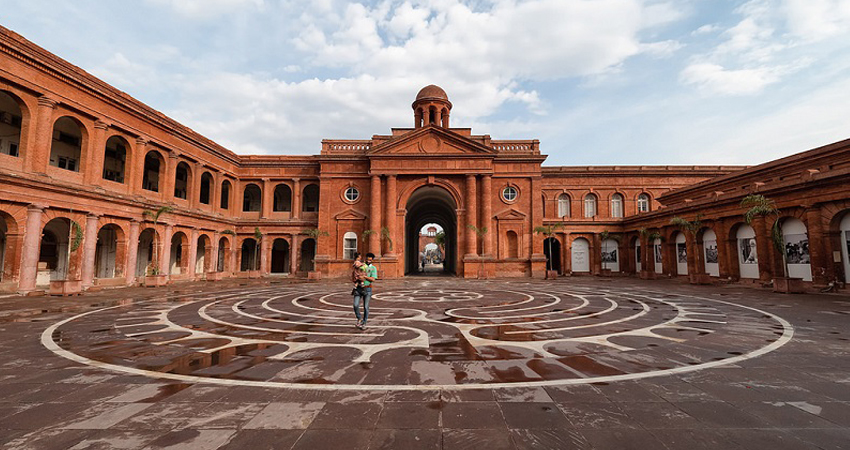On April 22, India was rocked by a terror attack after terrorists infiltrated a tourist destination in
Pahalgam, Kashmir and killed 26 people. The incident led to a reign of diplomatic turmoil between India and Pakistan. Shortly after the Jammu and Kashmir police revealed that two of the terrorists involved in the attack were Pakistani nationals, India upped its
security measures against Pakistan, which included shutting down the Attari-Wagah border.
Pakistan went on to claim that it had nothing to do with the attack and introduced
countermeasures. But at the heart of the Pakistani argument has been the fact that India should conduct an “independent and neutral probe on the matter.
STORY CONTINUES BELOW THIS AD
While India has been hesitant to do so because the incident happened at a tourist destination in India and not at the border, New Delhi has other valid reasons to reject Pakistan’s demand. As history showed, when New Delhi opened its door for Pakistani investigators to conduct a joint probe, Islamabad backtracked on its promises. One of the prime examples of this was how Pakistan’s investigative team treated the Pathankot incident.
Pakistan’s call for a ’neutral and independent probe’
Soon after it was found that Pakistani nationals were involved in the Pahalgam terror attack, Pakistan’s Prime Minister
Shehbaz Sharif offered India to join any “neutral and transparent” probe into the incident. “The recent tragedy in Pahalgam is yet another example of this perpetual blame game, which must come to a grinding halt. Continuing with its role as a responsible country, Pakistan is open to participating in any neutral, transparent and credible investigation,” the Pakistani prime minister said while addressing the army cadets passing-out parade at the Pakistan Military Academy in Khyber-Pakhtunkhwa’s Kakul.
The same proclamation was echoed by other top Pakistani leaders, such as the country’s Interior Minister Mohsin Naqvi and Rana Sanaullah, Special Assistant to the Prime Minister on political affairs. “If neutral people of any third country carry out a probe into this incident, we are ready to cooperate with them,” Naqvi said in a press conference in Lahore last month.
While speaking to Pakistani news outlet Ary News, Sanaullah also expressed readiness to investigate the case independently. “We are ready for a neutral inquiry into the Pahalgam incident,” Rana Sanaullah said, adding that Pakistan would also accept a joint investigation or even a third-party special expert-led probe into the matter.
The Pakistani administration even went ahead and lured international actors to demand the same, with its longtime ally
China joining the same cause. While speaking to Firstpost, Pakistan’s former High Commissioner to India also sang the same tune that Pakistan would be “willing to even go for an international investigation into this attack or the Pahalgam attack as well,” questioning whether India will accept the offer or not.”
STORY CONTINUES BELOW THIS AD
Well, there was a time in history when India did accept a joint investigation into a terror attack in Pakistan. However, the probe went downhill and set a precedent on why India could not trust Pakistan’s neutral call for an investigation.
Pathankot debacle: Why India can’t trust Pakistan’s ’neutral probe’
On January 2, 2016, a group of terrorists, who were later found to be linked to Jaish-e-Mohammed (JeM), a Pakistan-based terrorist group, infiltrated India and attacked the Pathankot airbase of the Indian Air Force in Punjab. Seven personnel were killed in the attack, and over 30 others were injured.
All four terrorists were eventually killed in an operation led by the Indian Army. When fingers started pointing towards how Pakistan supports terrorism, Islamabad started demanding an independent investigation, just like the way they are doing right now.
Eventually, a
five-member Joint Investigation Team (JIT) arrived in New Delhi from Pakistan to investigate the matter. They joined hands with the National Investigation Agency (NIA) and collected evidence and other records in the case for six days.
The Pakistani officials recorded statements of witnesses and collected DNA reports of slain terrorists. NIA gave a detailed presentation on the probe conducted so far and the JIT visited the crime scene in Pathankot. The team was headed by Additional Inspector General of Police, Counter Terrorism Department, Muhammad Tahir Rai and included ISI’s Lt Col Tanvir Ahmed.
STORY CONTINUES BELOW THIS AD
They recorded statements of 16 witnesses, including a Superintendent of Police-rank officer of Punjab, Salwinder Singh, his jeweller-friend Rajesh Verma and cook Madan Gopal. Three of the witnesses were attacked by Pathankot terrorists. NIA also provided JIT with swabs of the terrorists involved in the incident for further investigation. After six days JIT left for Pakistan, assuring that they would be happy to receive NIA in Islamabad.
### What happened next?
After JIT went back, India frequently requested Pakistan to allow an NIA team to visit the neighbouring state for further investigation. While Pakistan did not formally decline the request, it did not provide a definitive response, stating it needed more time to analyse the evidence presented.
While all this was happening, Pakistan also appeared to shift its stance on the case. Several Pakistani news outlets like Dawn started to report that after reviewing the NIA evidence JIT believed that the Pathankot attack was “staged”. They also refused to grant permission to the NIA team to visit Pakistan, making many believe that the Pakistani government was either linked to or supporting the terrorists involved in the attack.
### The investigative journalist who unravelled the case
While all this was happening, prominent Pakistani investigative journalist Ahmad Noorani published an explosive report for The News, in which he verified that all six Pathankot terror attackers entered India from Pakistan. The re

